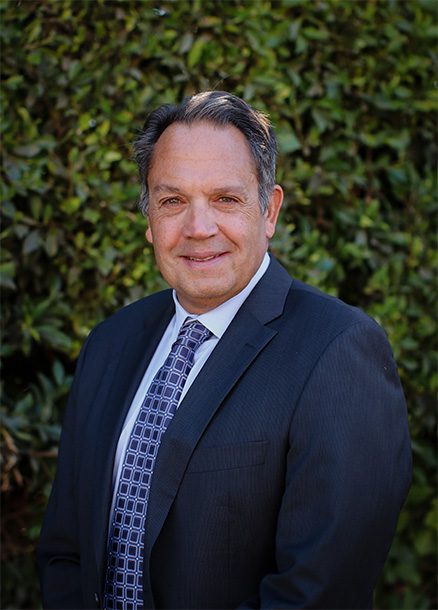Administration of Probate Estate
Probate or estate administration is a series of court-managed proceedings in which an individual’s assets are managed and distributed after they’ve died. Although this may seem like a straightforward process, the intricacies behind probating a person’s estate can make the task incredibly challenging. The waters could become even murkier if the decedent died in intestate (without a will) or only left a holographic will behind that can be easily disputed.
In California, any estate worth more than $184,500 is subject to probate if the decedent died without the proper estate planning documents. Unfortunately, because many people fail to take a proactive approach with their estate plan, that means most families will have to go through probate in order to redistribute assets according to the decedent’s wishes. The best way to ensure your loved one’s estate is handled properly and to save on steep probate fees is to hire an experienced and skilled California probate administration lawyer as soon as possible.
Probate Administration Attorney | Proudly Serving Ventura County, Los Angeles County and Central California
At Botti & Morison, we take pride in our work helping individuals and families navigate the probate and estate administration process. Our attorneys understand how stressful it can be to grieve over a loved one whilst handling mountains of paperwork, legal jargon, and demands from probate court. We want to take that burden off you by assisting in every step of the probate process.
The attorneys at Botti & Morison have over 90 years of combined experience handling California probate matters for executors, administrators, beneficiaries, and concerned relatives of the deceased. Call our offices today at (877) 585-1885 to schedule your first consultation.
We Have Estate Planning Offices Throughout Southern and Central California
Botti & Morison Estate Planning Attorneys has offices in Ventura, Westlake Village, Santa Barbara, Valencia, Bakersfield, and San Luis Obispo.
Information Center
How Does Probate Work in California?
Probate is a legal process where the court supervises the transfer legal title of property from the decedent’s estate to their beneficiaries or heirs. The court operates according to the decedent’s wishes if they left behind valid estate planning documents clearly expressing them such as a valid will or trust. These documents communicate the decedent’s intentions for how the estate should be administered and redistributed.
Under California law, not all estates are subject to probate. Any estate worth less than $184,500 will not be subject to any type of probate. However, it’s important to understand that your estate will include all your personal possessions, properties, and financial accounts including vehicles, real estate, possible investments, and any other asset under your name. With all that in mind, it’s not too difficult for an individual or married couple to collect over $184,500 in assets, even if they don’t live a lavish lifestyle.
What Assets Are Subject to Probate in California?
Any assets that weren’t distributed outside the probate process are subject to the authority of probate court. That includes intangible assets such as stocks, checking accounts or savings accounts, or interest in a business. One half of the decedent’s community property will automatically go to their surviving spouse unless estate planning documents indicate otherwise, but all separate property owned by the deceased may be subject to probate.
There are various estate planning strategies you can utilize to ensure your assets are protected from probate. Each strategy has its pros and cons and whatever works best for you will depend on your financial and familial circumstances.
Assets Placed in a Trust
Any asset transferred into a trust is automatically exempt from probate as it will be considered non-probate property. This is one of the main key benefits of establishing an irrevocable or revocable trust and why they’re a valuable estate planning tool to have in your arsenal. If you have a living trust, then you can even modify or cancel provisions within the trust agreement during your lifetime.
Life Insurance
Any life insurance payments are not subject to probate and can be directly paid to the beneficiaries listed.
Payable on Death or Transfer on Death
Any asset in a financial institution such as a bank or investment firm with a Payable on Death or Transfer on Death beneficiary listed can avoid probate. The designation must be clearly identified on the associated paperwork at the institution in which they are held. All assets will be transferred to the beneficiaries without any court intervention if this designation exists including probate.
Joint Tenancy
If an asset is own in joint tenancy, then the decedent spouse will automatically pass on their undivided interest in the property to the surviving spouse. This allows probate to be avoided entirely.
How to Probate an Estate in California
Please note the information below doesn’t take into the various different personal circumstances of the decedent, changes in the law, possible estate disputes that could occur, and so forth. This is only a general guide on how to probate a will in California. We highly encourage you to reach out an experienced attorney for more detailed information about how probate may affect your personal estate.
Determine If Probate is Necessary
Court intervention is not necessary for the estate if the proper estate planning documents have been executed in time or it’s worth less than $184,500.
Send Copies of the Will
If you’ve discovered the estate is subject to probate, you must first send a copy of the will to the executor listed and send the original to the Probate Court clerk in the appropriate county. If the will does not clearly name an executor, then send a copy to the beneficiaries listed on it. You can move onto the next step if the decedent failed to leave a will behind.
File a Petition for Probate & Other Related Documentation
With this legal action, the process of probate begins. Any relative or beneficiary with standing can begin probate by filing a petition named California Form DE-111. The petition must be filed with the appropriate California Superior Court in the county where the decedent resided at the time of their death. The petition has various options based on your circumstances.
Petition for Letters of Administration
For estates without a will available.
Petition for Probate of Will and Letters of Administration with Will Annexed
If the estate has a will available but never identified an executor.
Petition for Probate of Will and Letters Testamentary
For estates where a will is available, and an executor was named. The Letters Testamentary gives the executor power to act on behalf of the estate.
First Probate Hearing is Scheduled
Probate court will schedule a first hearing after you file the petition, and it’s usually within 4-6 weeks after the filing. Please note once these proceedings occur, they will become public knowledge. So, you should be wary of potential scam artists who seek out this information routinely.
Give Notice of the Hearing
The petitioner must give notice to surviving family members and any other person who has a right to a part of the state. Unfortunately, this can be complicated as the petitioner cannot give notice themselves. So, if you filed the petition, you’ll have to find a third-party adult to mail out the notices. In addition, the petitioner must make arrangements with a local newspaper in general circulation to publish the notice of the probate hearing.
First Probate Hearing Occurs
At this hearing, the court will determine who will be the estate’s Personal Representative based on the petition. If the estate had a will available, the personal representative is known as the executor. However, if no will was available, the representative will be known as the administrator.It’s important to note you cannot act as a personal representative until the court appoints you through formal “Letters Testamentary” or “Letters of Administration” issued by the clerk. This document is vital because it allows you to prove to third-party agencies such as banks or government agencies you are in control of the estate’s accounts and deeds legally.In some cases, probate court will require you to post a bond from an authorized surety company in order to receive your “Letters.” The bond acts as collateral for the court to ensure you properly execute your fiduciary duties as a personal representative. How much this bond will cost will depend on a variety of factors.
Account for all Assets
As the estate’s personal representative, your next step will be to begin taking control of all the decedent’s assets. This process is often referred to as “collecting.” All money going in and out of the estate must also be accounted for with very clear explanations for why they were expended.
Begin Inventorying Assets
Once the assets have all been collected and protected, you can prepare and file the Inventory and Appraisal form (also known as DE-160).
Name a Probate Referee
You’ll likely have a Probate Referee assigned to your case or be responsible to find and contact an authorized one. They will value all non-monetary assets included in the estate and you can find a list of them by county
Provide Notice to All Creditors
The next step you must complete as the estate’s personal representative is to provide formal notice to all creditors (DE-157). When an individual dies, it does not extinguish creditors’ claims laid against them and as the estate’s personal representative you must sort out these affairs.The notice must be given within the later of:
- Four months after the letters are first issued to you
- Thirty days after you first have knowledge of the creditor’s claims
Pay Off the Decedent’s Debts
Any valid debts owed by the decedent must be paid off with money from the estate.
Create the Decedent’s Final Tax Return
A final personal income tax return must be filed on behalf of the deceased and all final taxes must be paid through the estate’s funds.
Second Probate Hearing
It’s important you understand that for most probate cases a significant amount of time must pass before the second hearing can occur. It often takes 6 to 12 months for the court to finally schedule a hearing where the judge will make a determination on the final distribution of assets.
Begin Distributing Assets
At the end of the second hearing, you’ll receive a Judgement of Final Distribution from the courts. Based on that judgement, you will begin distributing assets according to the details of the court order. While necessary, this is a time-consuming process, and can be stressful to complete by the specified deadline.
Probate in California Without a Will
If the decedent never left a will, probate court will take the reins and determine how assets should be redistributed based on the California probate code. Probate court will appoint a personal representative for the estate known as the administrator. You can petition the court for this role if you wish to be the personal representative of the estate.
The major difference between dying testate (with a will) and intestate (without a will) is that your assets are redistributed according to your wishes if you die testate. If you die intestate, then your assets will be distributed based on State laws also known as intestate succession. For instance, the surviving spouse, if the decedent had one, will inherit all the community property owned by the decedent as well as any assets they may have owned in joint tenancy unless a will stated otherwise.
Intestate Succession California
Intestate succession is the process outlined under California inheritance laws that dictates how an estate’s assets will be redistributed if they die without a last will and testament. In most probate cases, the court abides by the contents of the last will and testament or trust. However, if neither of those exist, then the state will defer to California’s intestate successions laws. These laws cannot be contested unlike a will or trust, but there are claims that can be made that might help you obtain more than your intestate share of the state.
The people entitled to the decedent’s property through intestate succession are known as heirs of law. In California, intestacy laws focus on how closely related to the decedent a person is rather than their relationship when determining who is the estate’s heirs. Below is an intestate succession chart that may be of benefit to you.
| If you die without a will and… | Who inherits what… |
|---|---|
| Have adult children and you’re unmarried | The children will inherit everything |
| You’re married, but no children, parents, siblings, or nieces or nephews | Your spouse will inherit everything |
| Your parents are alive, but you have no children, spouse, or siblings | Your parents will inherit everything |
| Your siblings are alive, but you have no children, spouse, or parents | Your siblings inherit everything |
| You’re married with one child or grandchild | Your spouse will inherit all of your community property and half of your separate property |
| You’re married with two or more children | Your spouse will inherit all of your community property and one-third of your separate property
Your children will inherit two-thirds of your separate property |
| You’re married with one child and one or more grandchildren from a deceased child | Your spouse will inherit all of your community property and one-third of your separate property
Your children will inherit two-thirds of your separate property |
| You’re married with two or more grandchildren from a deceased child | Your spouse will inherit all community property and one-third of your separate property
The children will inherit two-thirds of your separate property |
| You’re married and your parents are alive | Your spouse will inherit all of your community property and one-half of your separate property
Your parents will inherit one-half of your separate property |
| You’re married with siblings, but your parents are deceased | Your spouse will inherit all of your community property and one-half of your separate property
Your siblings will inherit one-half of your separate property |
Additional Resources
Probate Referee Guide
Visit the official website for the California Probate Referees Association to read their guide regarding Probate Referees and their role in the process. Access the site to learn more about how they determine the value of certain assets, what they may require from you during their investigation, and more.
Wills, Estates and Probate | California Courts
Visit the official website for the California Courts Judicial Branch to learn more about probating a person’s estate. Access the site to learn how to find out who the estate representative is, what your duties as a personal representative may be, identifying and inventorying assets, and other valuable information.
Probate Lawyer in California | Estate Administration Services in Ventura County, Los Angeles County and Central California
As you can see, the probate process is incredibly intricate and requires extensive knowledge of California laws and procedures. That is why it’s so important you consult with a knowledgeable and experienced California probate and estate administration lawyer first before making any major decisions.
The attorneys at Botti & Morison have decades of experience with probate and estate administration. They have assisted thousands of individuals and families file effective Petitions for Probate and assisted them through every phase of the administration process successfully. They can do the same for you so you can rest assured your loved one’s affairs have been properly settled.
Administration of Probate Attorneys in California
Our probate lawyers have decades of experience helping families through the probate process. Call today at (877) 585-1885 to set up your first consultation free of charge.
Botti & Morison accepts clients throughout California and has offices in Ventura County, San Luis Obispo County, Los Angeles County, Kern County, and Santa Barbara County.






